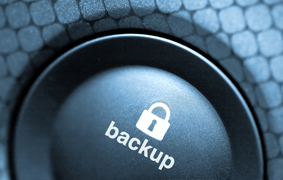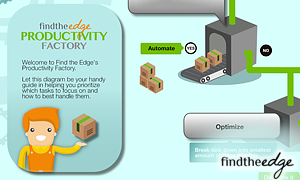 Whether you are just starting your business, or have an established set up, the unexpected can always happen and is often outside your control.
Whether you are just starting your business, or have an established set up, the unexpected can always happen and is often outside your control.
From computer viruses to server breakdowns, power cuts to loss of phones and snowed in staff members, something disruptive will inevitably happen to you eventually.
You may not be able to predict these disasters, but you can ensure their effects don’t cripple your organisation, damage the service you provide, and ultimately hit your bottom line.
Being prepared needn’t require a huge financial investment, and in times of disaster, a well thought out plan to respond to a ‘what if…?' question can result in an increased market share.
Here are some top tips to guarantee business continuity, which won't cost the earth.
Plan Ahead
Putting together a robust plan now will save you time and money.
Look at your organisation as a whole; do you need it to run exactly as it does today, or could it survive with reduced staff running core functions?
To begin with, concentrate on plans for the latter; re-establishing core functions such as utilities, IT, telephones and payroll systems.
You may think you know roughly what functions you require, but make sure your Business Continuity Plan reflects your operational requirements. You need to ensure continued service to your current customers before worrying about any ‘new business'.
Once you’ve got this plan in place, test it, analyse it, and – above all – perform regular reviews to keep it updated.
Communication is Key
It’s pointless having a robust plan to keep your business going if nobody knows about it.
Involve your management team, stakeholders and any key staff required to operate core functions.
Keep a hard and soft copy of these plans in an accessible place, both on and offsite, detailing procedures to follow, contact and accounts numbers, and the people nominated to be in charge of implementing the procedures if a disaster hits.
IT Systems Do and Will Fail
They are fallible, no matter what anyone tells you. Computers, servers and other technologies all have minds of their own.
Plan for failures by setting up free internet Gmail addresses that can be used in emergencies, and keeping hard copies of information to hand that will help you perform key functions.
Back-Up, Back-Up… Oh, and Back-Up Some More
The key to backing up data is keeping it offsite.
A portable USB drive is worth its weight in gold. Set up a daily back-up schedule that includes key documents that are needed to keep your business going such as; terms of business, variation documents, standard correspondence, even marketing documents.
Investigate other cost effective online methods that will back-up as you go.
Who’s Got The Remote?
The answer is “you should all have it”.
Giving your key staff the ability to work remotely is essential.
At a basic level have emergency mobile phones, Skype accounts, and remote access to emails and/or access to desktops via the internet.
There are plenty of cost effective software packages, such as TeamViewer, that can help you.
Whether you provide your employees with a laptop, dongle or even a smartphone, remember your IT and data protection policies. Choose security and access settings that are appropriate to the roles they perform.
Don’t Put All Your Eggs in One Basket
Use a USB back-up for key documents, but also support this through the use of a centralised, free, online document store such as Google Docs. Keep these updated, and don't fall behind.
Practice Makes Perfect
Make sure you practice key procedures to identify any flaws. If you rely on restoring data from backups, make sure the process works and you know how much time it will take to complete.
Think of the Worst Case Scenario
If your building burned down overnight, how would you get your business up and running again in the shortest time possible?
By thinking the unthinkable, you can create a workable plan for almost any eventuality.
Conclusion
Ultimately, you need a practical solution that gives your customers and clients security and confidence, but that also gives your staff peace of mind.
A robust business continuity plan is a selling point for any business, and – by utilising the software, tools and technologies you already have – you can create a cost effective plan that is truly priceless.





